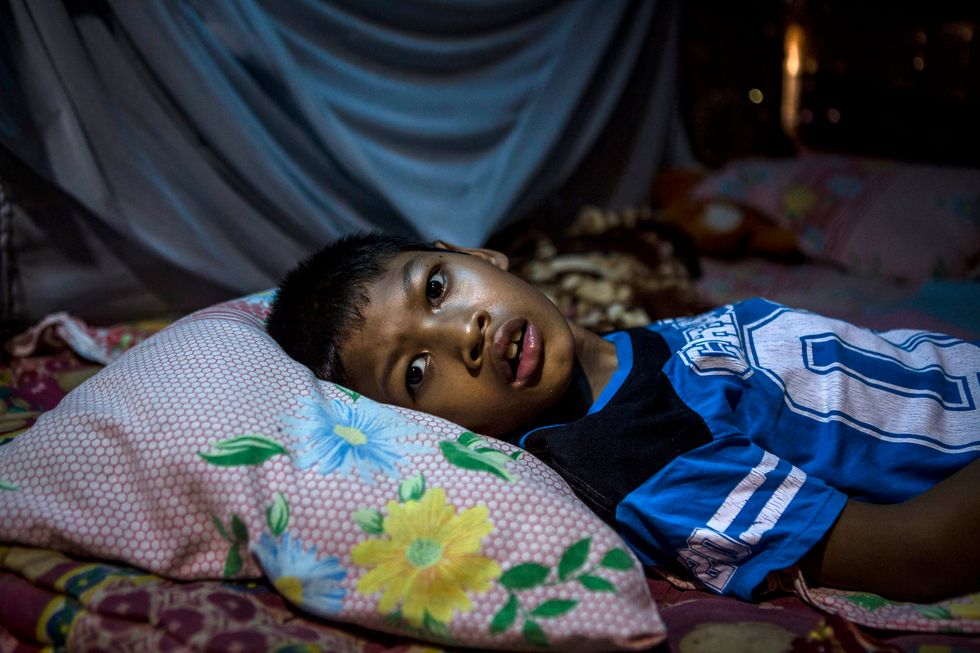
Faiz lies on the bed inside the house at Sidoarjo Village in Jambon subdistrict on March 25, 2016 in Ponorogo district, Indonesia. (Photo by Ulet Ifansasti/Getty Images)

In a world dark and decrepit, seemingly detached from civilized society, hundreds of Indonesians lay chained, locked and bound to the dirty floor and cement slabs, suffering from mental illnesses with no hope on the way.
In Ponorogo, East Java, home to the villages of Sidoharjo, Karangpatihan and Krebet, many suffer from what the natives know only as "Kampung Idiot" — an illness known as Down syndrome in Western culture — and other severe mental illnesses.
Unsure of how to treat the illnesses, many of the disabled villagers in the Muslim-dominated society end up shackled and caged by faith healers who are unsure of how to properly treat the mentally ill Indonesians, the Daily Mail reported.
Down syndrome sufferers Faiz, 10, and Jamila, 13, are two adolescents from the nearby Jambon district and the Sidowaya villages, respectively, and have been mute and paralyzed since infancy. Their struggle is the story of many in the desperate villages of Ponorogo.
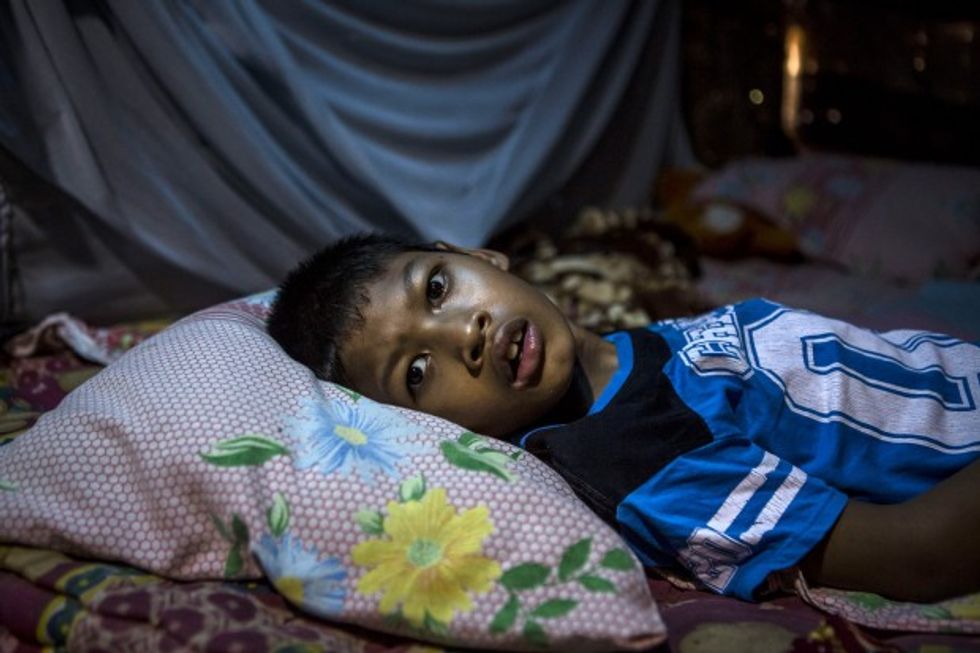
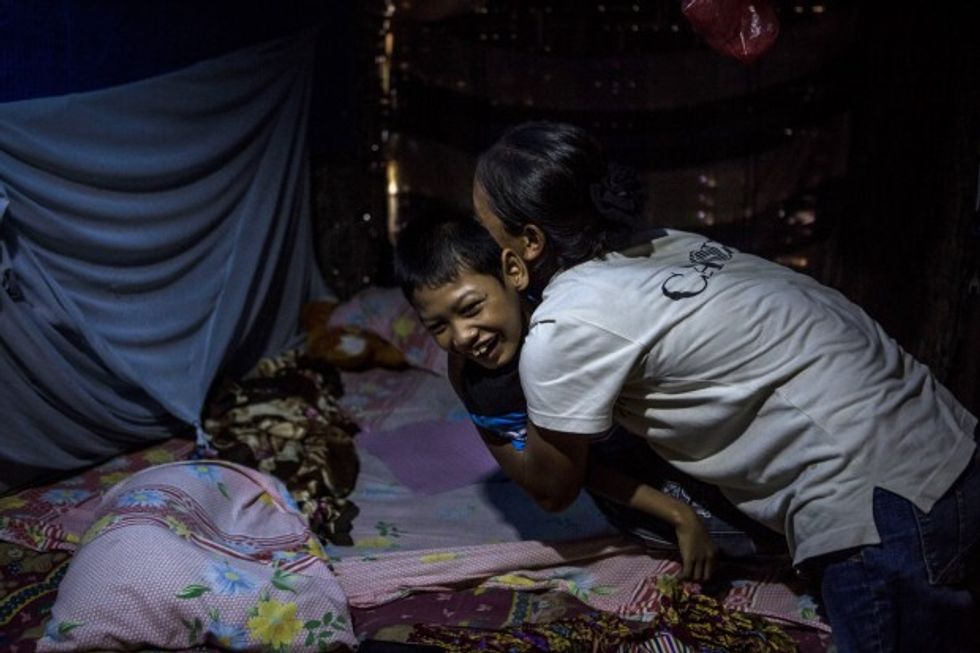
All of these Ponorogo villagers, ranging from adolescent to adult, live well below poverty level, some making only $30 to $40 per month, and suffer from malnutrition, vision problems and hearing impairment. Government officials claim the mental and physical illnesses that plague the villages are the result of incest, iodine deficiencies and malnutrition.
And In Indonesia, which has a population of nearly 250 million people, there are only 48 mental hospitals, and most of them are in urban locations.
Even if treatment was affordable, it is nearly unattainable, leaving families with no where to go and no one to turn to except faith healers in the Muslim culture. Many of those healers determine that the best solution is to chain their ill patients.
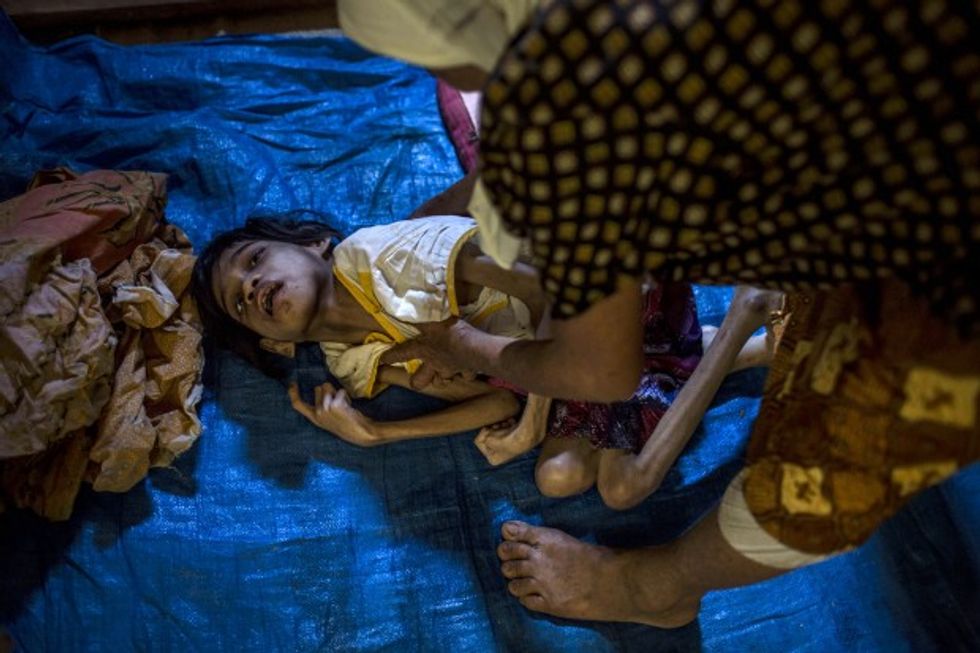
Others who are suffering in the abandoned villages include 45-year-old Saimun, who lies shackled to the ground in his shadowed shanty, where he was chained 20 years ago, when his parents learned he suffered severe mental illness.
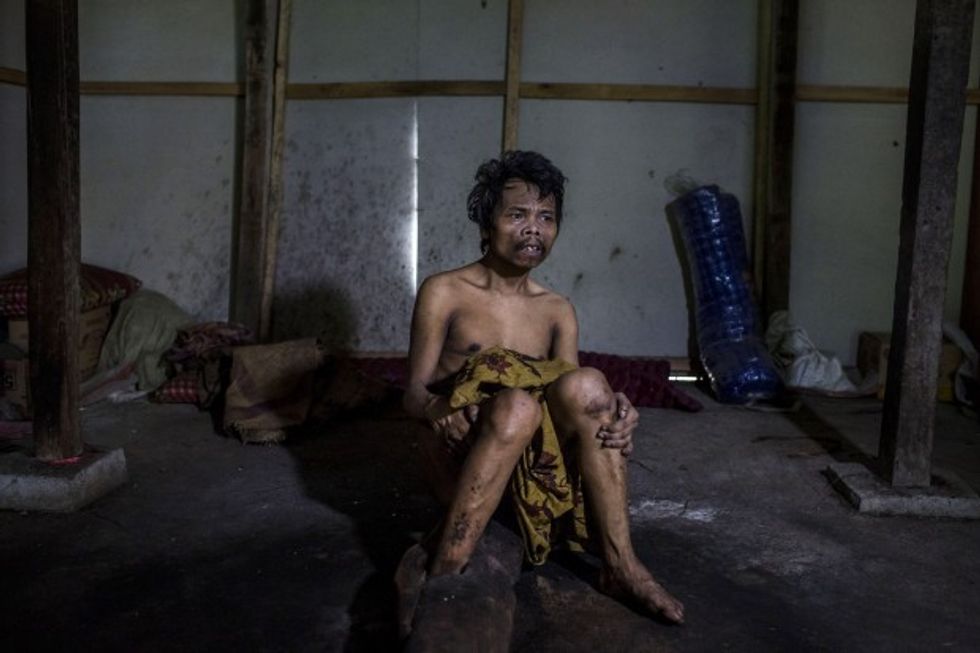
The Pongoro district has a population of approximately 880,000 people, and more than 400 villagers suffer from psychosocial disabilities and live in insalubrious conditions. The common practice of chaining the mentally ill villagers, according to Daily Mail, is known as "pasung" in the Indonesian culture.
The Indonesian government outlawed "pasung" in 1977, but it has failed to enforce its banning. Approximately 57,000 Indonesians have been subjected to the practice in the past and 18,800 villagers are currently living under "pasung," according to the Human Rights Watch.
The inhumane practice — which also includes caging people suffering or are perceived to suffer from psychosocial disabilities — has been illegal in the country for nearly 40 years, but remains an endemic in rural areas where healthcare is basically nonexistent and belief in evil spirits reigns supreme.
Suhananto, 30, is one of those villagers who lives in a cage because he suffers from an undiagnosed mental illness. He was locked up in the enclosure by his parents approximately one year ago.
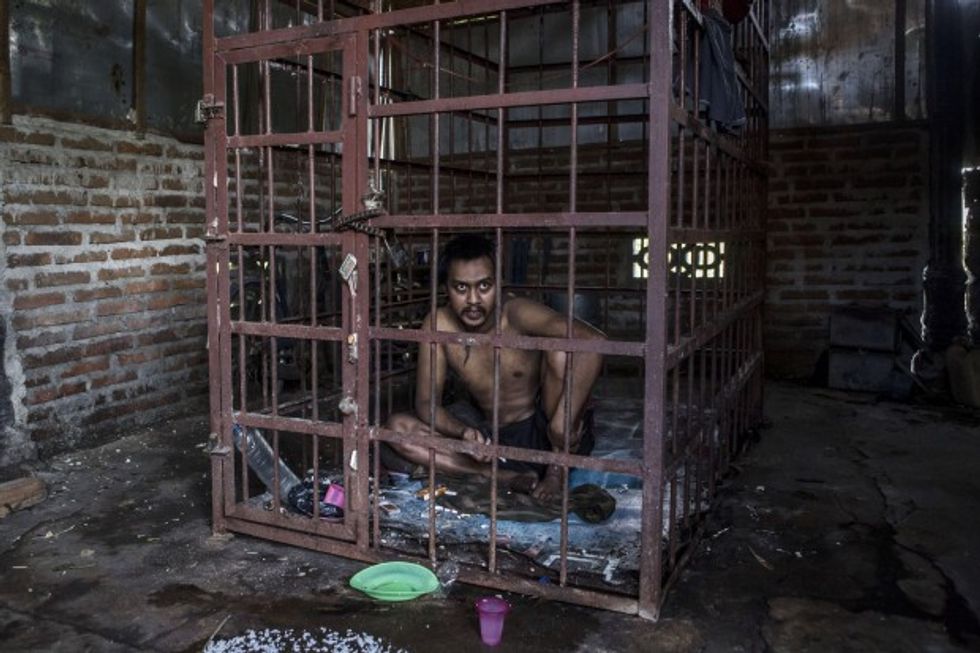
Sinem, age unkown, who lives in the village of Krebet, is paralyzed, deaf and mute and suffers from Down syndrome. Simus, 60, also lives in Krebet and suffers from Down syndrome. Both villagers live a life seemingly exiled from society.
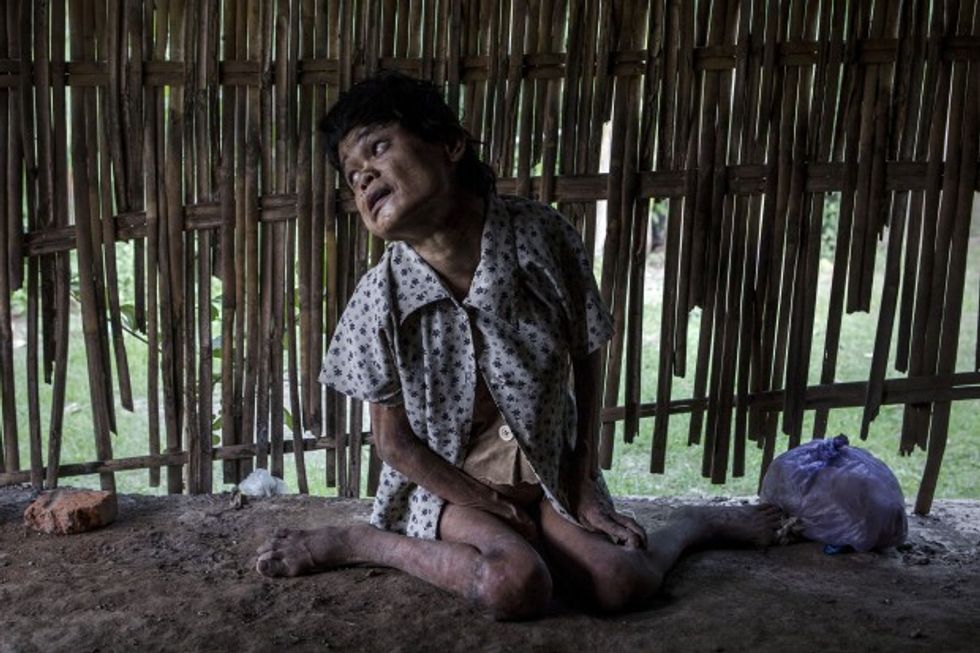
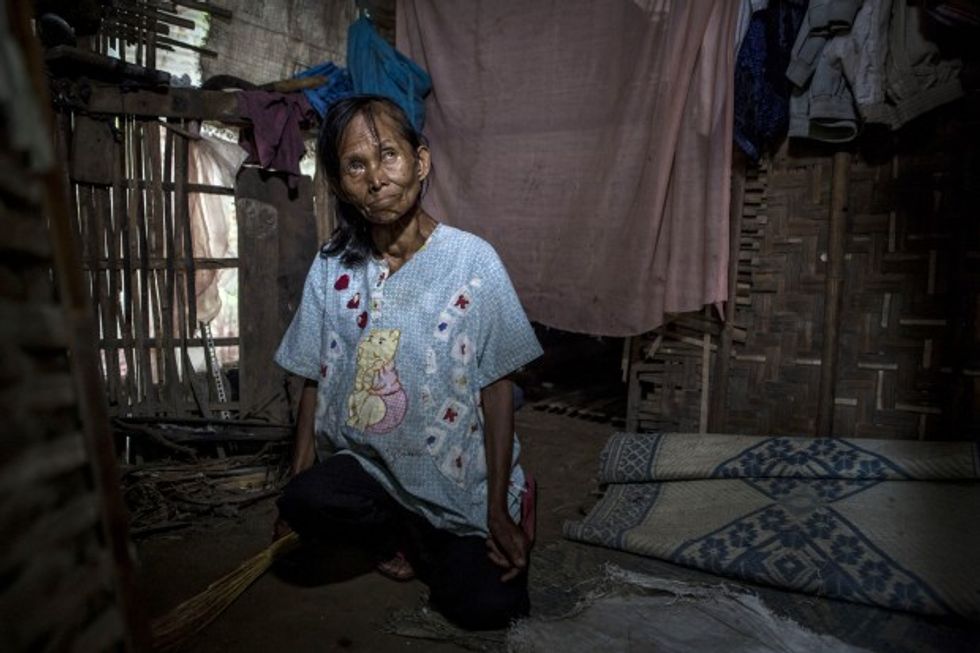
According to data from the country's health ministry, at least 14 million Indonesians are believed to be suffering from some type of mental disability and, though shackling of these individuals happens all across Asia, it is most prominent in Indonesia.
"Nobody should have to be shackled in Indonesia in 2016. People told us again and again that it's like living in hell," disability rights researcher Kriti Sharma told the Agence France-Presse.
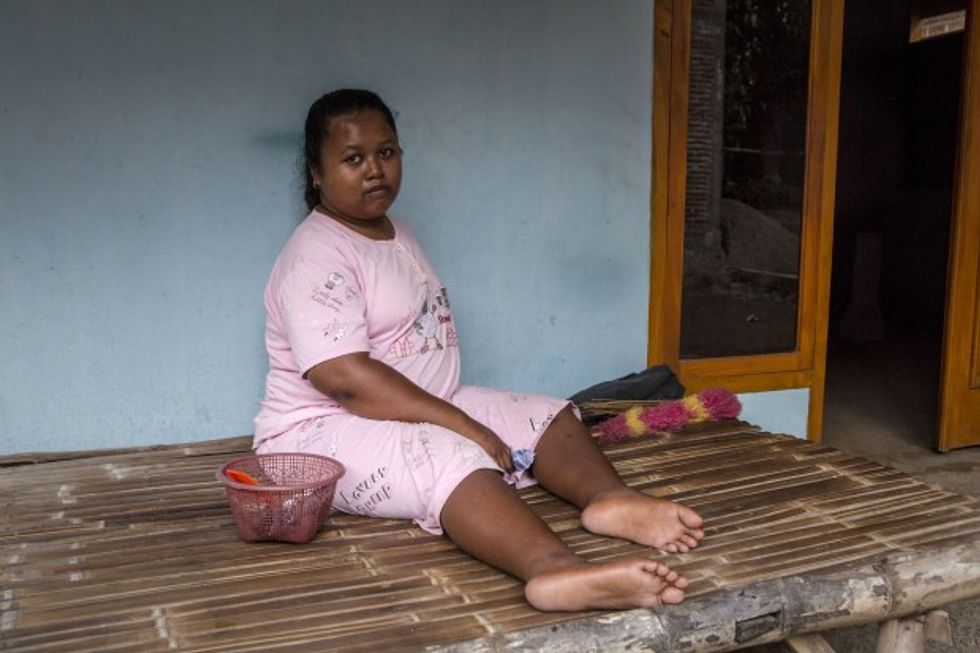
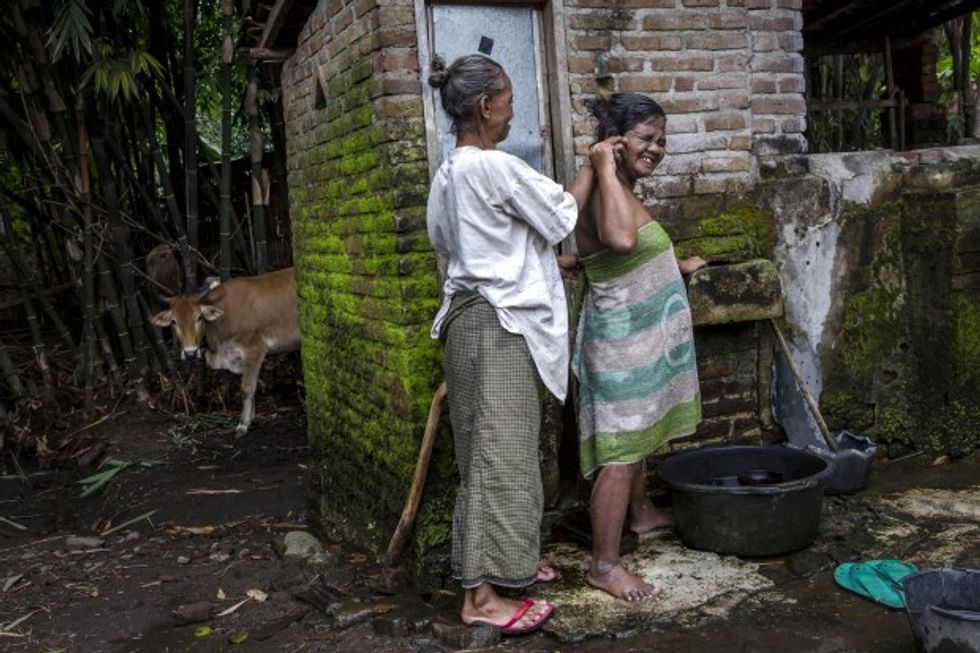
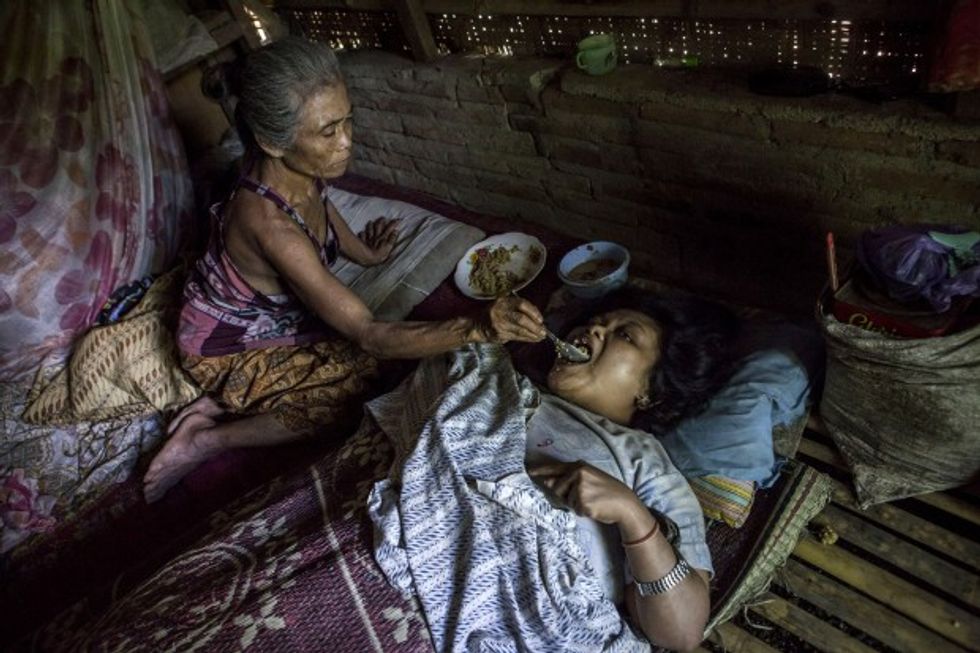
Some ill villagers aren't chained, like 17-year-old Down syndrome sufferer Andika, but due to the lack of knowledge and access to doctors or healthcare in the remote regions, they may never experience any real quality of life.
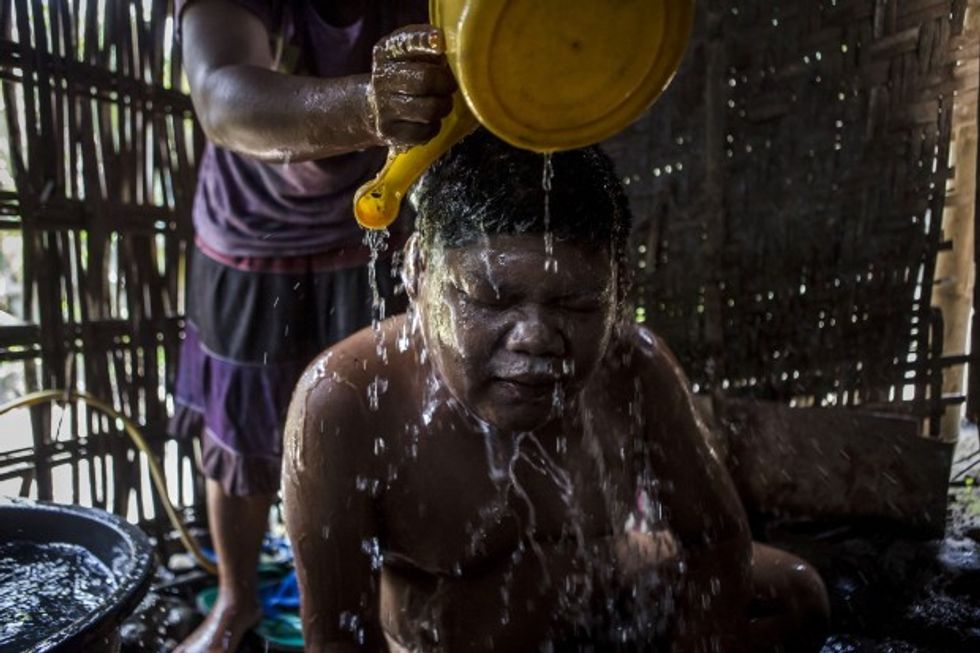
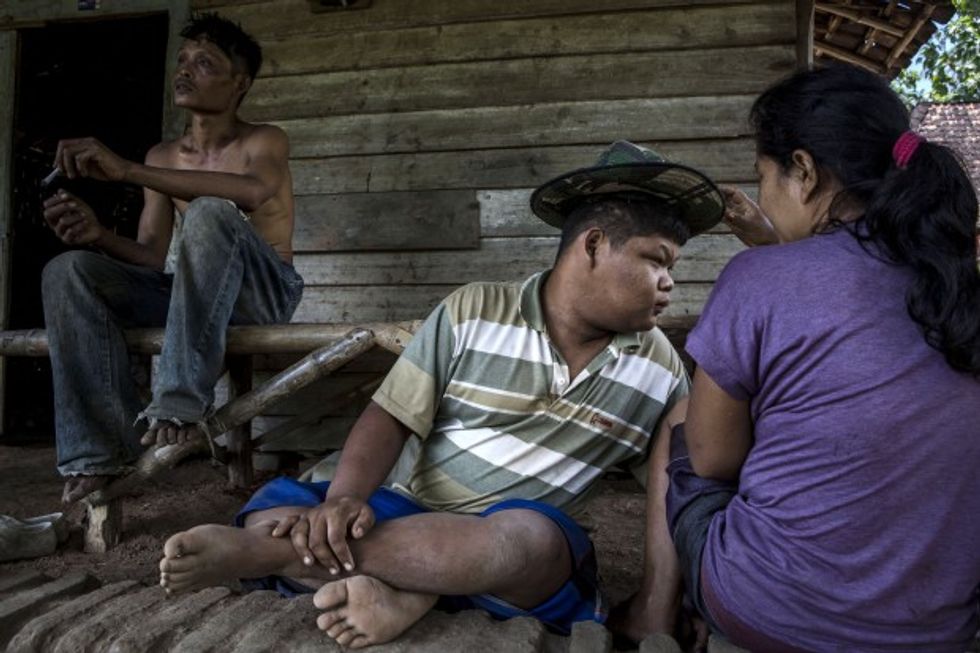
The Human Rights Watch, whose 72-page report is entitled "Living in Hell: Abuses Against People with Psychosocial Disabilities in Indonesia," interviewed nearly 150 people for their report and concluded that approximately 19,000 mentally ill Indonesian villagers are currently suffering from "pasung."
—